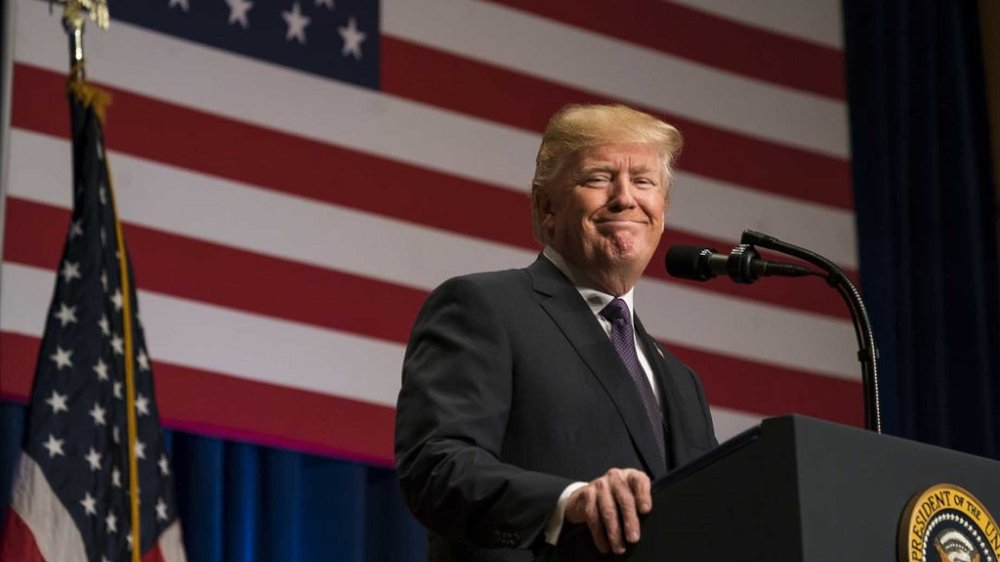Trump, the controversial president in 2017

A year into his presidency, U.S. President Donald Trump has made overwhelmingly controversial decisions and has taken stances that affected the world one way or another.
Trump began his tumultuous journey by signing a decree banning citizens of six Muslim countries from entering America - Iraq, Syria, Sudan, Libya, Somalia and Iran.
Observers stressed that the decision will backfire on the U.S. security, and in the long term will be a reason to attract terrorist operations against the United States. It will also increase hatred towards Muslims.
In turn, hatred of Islam and Muslims serves terrorist organizations and facilitates the recruitment of thousands of angry young Muslims, turning them into time bombs.
At the domestic level, the poor in American society have been hit hardest by Trump's budget for 2018, which included cuts in social security and changes in anti-poverty programs. These cuts included several programs, especially food stamps, which benefit the poorest in the country.
With regard to the crisis on the Korean Peninsula, the American provocations of North Korea have escalated by moving its fleets and military pieces to the region.
Trump’s war of words with North Korean leader Kim Jong-un was closer to the battles of boys than to the remarks of the leader of a superpower.
Reacting to Jong-un’s announcement that the nuclear button was always on his desk, Trump said he had a bigger and stronger nuclear weapon than his North Korean counterpart.
The U.S. provocation pushed North Korea into more challenging and insistent stance.
In his latest televised speech, Jong-un confirmed that the entire United States is in the range of North Korean nuclear weapons and the nuclear button is always on his desk. This is a reality, not a threat.
The Middle East has seen the worst decision a U.S. president could make in general regarding recognition of Jerusalem as the capital of Israel. Trump announced that he ordered the start of preparations for the transfer of the U.S. embassy in Israel from Tel Aviv to Jerusalem.
There is widespread international and regional criticism as millions of Muslims around the world protested against the U.S. decision.
On the Yemeni crisis, the U.S. administration, during the Trump era, increased its military support for Saudi Arabia in its war against Yemen despite the daily massacres committed against this country by the House of Saud.
The Wall Street Journal reported that the United States not only increased military support for the Saudi-led coalition against Yemen but also provided more logistical and intelligence support to it.
The Journal of America reported that the Trump administration is seeking to resume sales of precision-guided weapons to Saudi Arabia.
On the Syrian crisis, Washington continued its blatant interference in favor of armed groups, declaring hostility to the legitimate government in the country.
In this context, the U.S. attempted to abuse the gains against ISIS made by the Iran-Russia resistance axis in its own favor.
U.S continued to support the Syrian Kurdish Democratic Forces, which used to represent a project of sedition in Syria.
But the recent mayhem in Iran has revealed the psychological state of President Trump, confirming he is suffering from schizophrenia.
While Trump describes the Iranian people as a group of terrorists and orders to ban them from entering the United States and imposing further sanctions on Iran, all of sudden, we find in his latest tweet a series of sensational posts about the unrest in Iran.
But the Iranian people will never listen to Trump whose administration, and the ones before him, created many economic crises for Iran through imposing sanctions.
The Iranian people who have always been ready to sacrifice their sons will also deal with the latest crisis, as they did with the previous ones.
(Source: MNA)
Leave a Comment